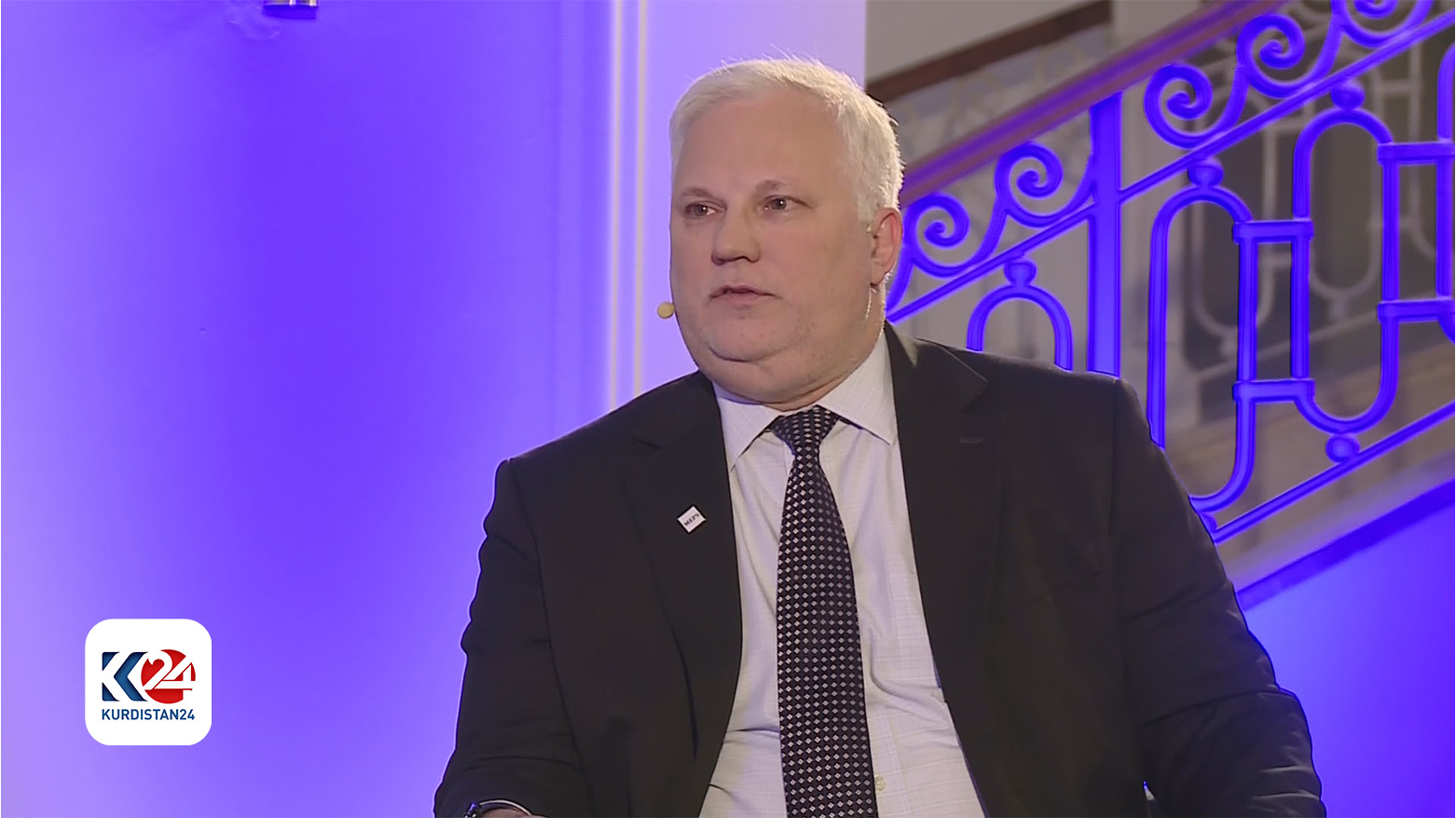Former US official advocates for enduring partnership between US and Kurdistan Region

ERBIL (Kurdistan 24) – Joel Rayburn, former US Deputy Assistant Secretary for Levant Affairs and Special Envoy for Syria, told Kurdistan 24 on the sidelines of the MEPS Forum 2023 in Duhok that the US should have a policy of making sure that to be able to preserve the constitutional existence of the Kurdistan Region.
“There's no doubt the Kurdistan Region is under an enormous amount of pressure right now,” he said, blaming outside powers from the region.
He said these outside powers want to partition the Kurdistan Region in two regions, “fighting against one another and able to be manipulated.”
“The US doesn't have an interest in that. I think the US has not done enough in the past since 2017 since the Kirkuk crisis. I don't think the US has done enough to insulate the Kurdistan Region from that pressure.”
“In my view, the Kurdistan Region is a constitutional entity within the Iraqi state. It has to remain so and the United States should have a policy of making sure that to be able to preserve the constitutional existence of the KRG.”
“I think right now there's not enough being done in that regard. If it can be done and if the United States can have a stronger policy concerning the Kurdistan region, then there should be a long partnership,” he said. “There should be an enduring partnership between the United States and the Kurdistan Region.”
US presence in Syria
Moreover, on the US military presence in Syria, the official said the US cannot withdraw as long as there is “there is still a terrorism problem there, And not just the terrorism problem in northeast Syria, but also in Iraq.”
He said as long as the ISIS danger exists, the US cannot withdraw. “Because I think as soon as the pressure is relieved from Daash (ISIS), then they will come back.”
Moreover, on attacks by Iran-backed armed groups on US bases in Syria and Iraq, the former official said that no US “administration can let American soldiers be killed, or can let American bases and diplomatic facilities be attacked without eventually mounting a strong response.”
He said for this reason, the US also has taken constructive military steps by moving carrier groups and other forces into the region to “be able to respond to any attack.”
However, he said the US has not matched those military “steps with economic sanctions with political pressure, international political pressure against the Iranian regime and its proxies.”
“That's counterproductive. So what I would like to see is the United States and the United States getting its allies, Europe and elsewhere to do the same, to have economic pressure and political pressure alongside the military pressure.”
He also blamed Iran and Iran-backed armed groups for using the supreme Iraqi federal court as an ‘Iranian tool’ to destabilize Iraq. He also said Iran played a role in the conflict between Israel and Hamas since the Oct. 7 Hamas attack on Israel.
“I think the risk of that crisis expanding elsewhere in the region is very high because I think that the conflict is fueled by the Iranian regime. I think what happened on October 7, is the logical consequence of the Iranian regime sponsoring Hamas.”
Ceasefire in Turkey
The official also urged for a renewed ceasefire in Turkey, which had broken down between the Kurdistan Workers’ Party (PKK) and Ankara in 2015.
“I think the United States and the European allies in particular, should do more about what is trying to get to a resolution, a settlement of the Turkey-PKK conflict.”
He said a lot of conflicts in the Middle East, in Iraq, Syria and southern Turkey are caused by this “continuing problem of the Turkey PKK conflict”.
“I think there really needs to be a concerted effort to try to create a roadmap back to an armistice such as there existed before 2015.
“And I think because ultimately, there needs to be a partnership between Turkey and all of the Kurdish communities in the northern Middle East (...) I think that's the way it has to go but this Turkey-PKK conflict stands in the way.”
